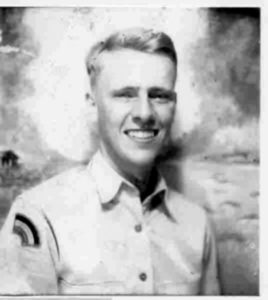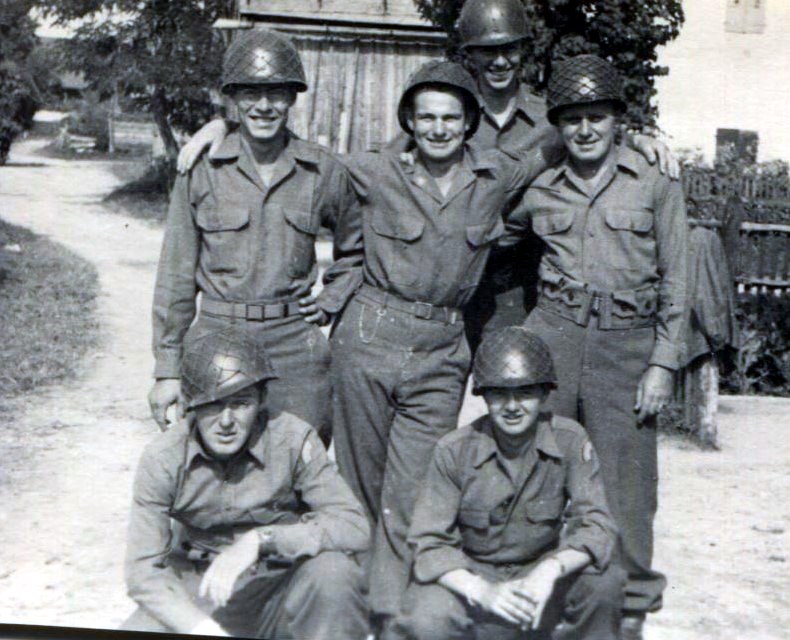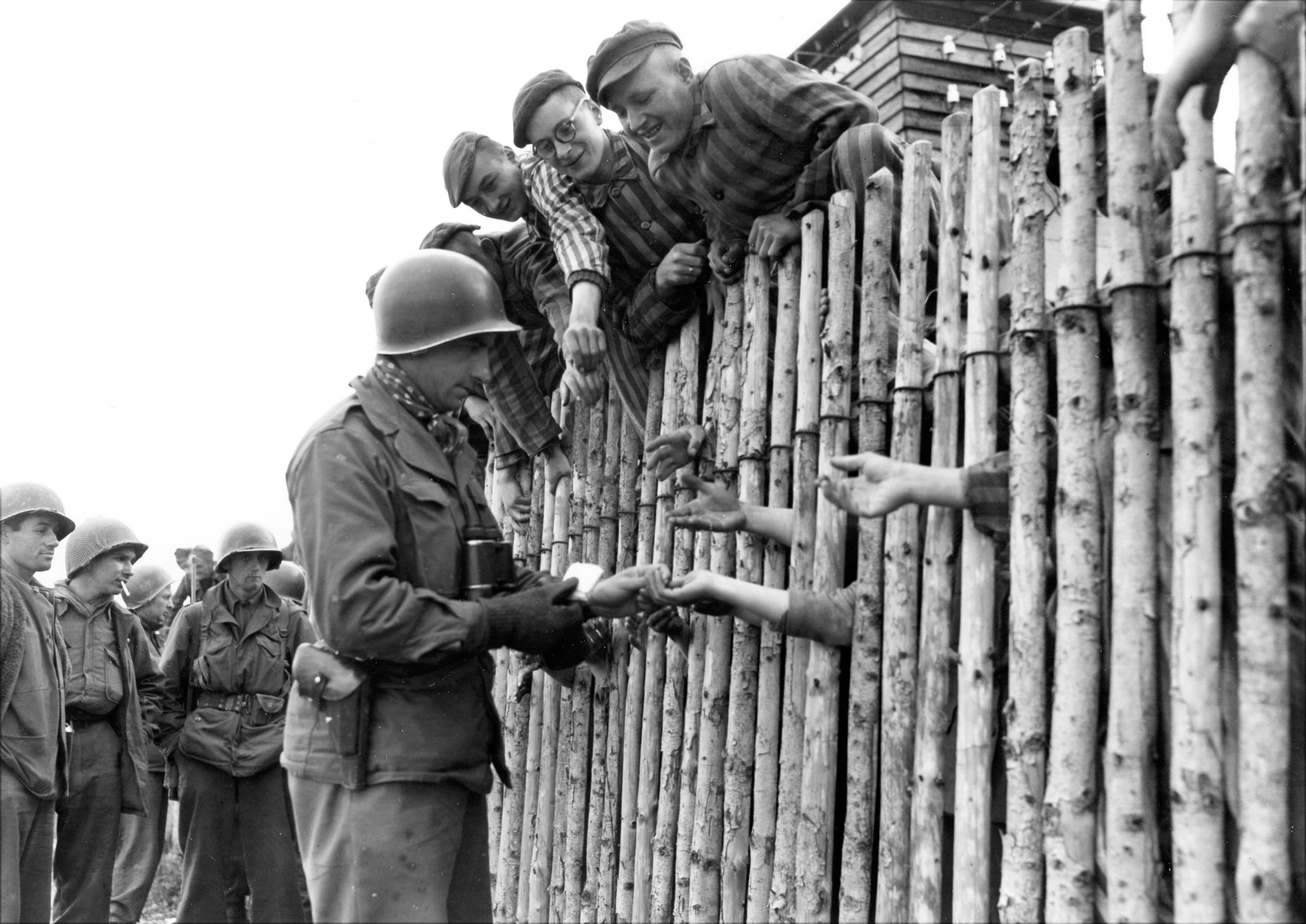The first thing he noticed was the smell: a sickening odor that he would never forget.
“I wouldn’t take a deep breath. I’d just breathe as little as I could,” James Frank Dorris Jr. recalled. “I knew immediately it was burned bodies.”
It was April 29, 1945, a cold, damp day. Months earlier, Private First Class Dorris had fought in the Battle of the Bulge. Now a few miles from Munich, the 19-year-old Dorris had been diverted along with his fellow soldiers, ordered to liberate a Nazi concentration camp called Dachau.
“We had never heard of Dachau,” he told interviewers for the Library of Congress’s Veterans History Project. “We really didn’t know what a concentration camp was.”

Dorris learned quickly.
Walking single file on each side of the road, Dorris and his fellow soldiers from the 222nd Infantry Regiment, 42nd Infantry Division came across train tracks, with 30 or 40 boxcars on them—all filled with what he estimates must have been thousands of dead bodies. They found just a single survivor among the starved, machine-gunned corpses.
Farther along, Dorris’s lieutenant ordered him down a passageway along the camp’s fence. There he saw another long pile of bodies, stripped of their clothes and stacked outside.
Behind them stood hundreds of emaciated Dachau prisoners, staring silently at Dorris with shocked expressions.
“I thought, ‘This is what hell is like.’ And in my mind, I imagined the devil himself coming up out of the ground. And I looked up in the sky, and I said, ‘God, get me out of this place,’” he recalled. “I didn’t know what to do.”
Suddenly, a prisoner appeared and asked Dorris in German if he had a cigarette. Dorris did, but not enough for everyone—so fearing a riot, Dorris said he didn’t. The prisoner disappeared, running back to his barracks.
A few minutes later, the prisoner was back.
“He came over to the fence and put his hand through and had a little round rusty can,” Dorris said. “Opened it up and there was a cigarette butt, about an inch long. And he said, ‘This is in thanks for liberating us.’”
The despair Dorris was feeling melted away.
“Well, I wanted to cry, and I thanked him profusely,” he said. “I had a complete change of the way I felt. I thought, ‘I’m really doing some good here.’”
That was 76 years ago today. On April 18, 2019, Dorris passed away at his home in Chattanooga, Tennessee. He was my grandfather-in-law.

By the time I met James Dorris Jr., he was in his 90s, with failing vision and limited mobility—in many ways the opposite of the 19-year-old who trudged through Dachau on that dreary April day. But in many ways, he was the exactly the same big-hearted man.
In the years after the war, he went on to marry Charlotte Snow Dorris, his wife of 66 years. He also became owner of Esstee Manufacturing Co., a steel fabricating business.
The horrors he witnessed at Dachau never left Dorris—but rather than hide from them, he talked about them freely, trying to educate others around him, in the hopes of preventing anything like that from happen again.
Though I only got to meet him a handful of times, he was unfailingly kind and welcoming. When my wife called to wish him happy birthday last year, he made a point to ask her to pass the phone to me so that we could chat. We had only been married a year, but he left no doubt that I was a valued member of his family.
Dorris was like that to everyone he met. A regular church-goer, he touched many people in his community. Among the dozens of relatives who gathered to remember him this month were strangers who no one in the family seemed to know, but who felt compelled to tell us how much he meant to them.
He was a remarkable man who survived the Battle of the Bulge, liberated Dachau, and then went home to lead a quiet, humble life.
World War II produced many remarkable people like him. With each passing day, time shrinks the number of those who remain.
I’ll never know most of their stories. But I’m honored to have gotten to know Mr. Dorris.

—George Altman covers veterans affairs for Military Times, sister publication to World War II magazine and the other HistoryNet publications.





